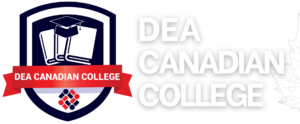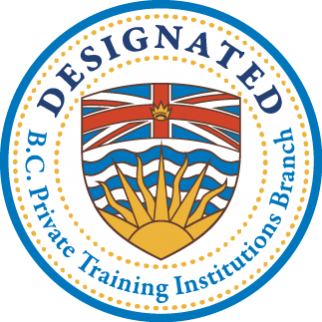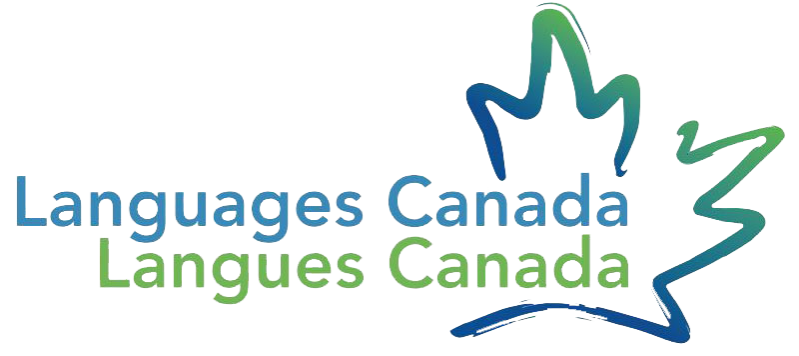PROFESSIONAL CERTIFICATE
Early Childhood Education Assistant
Become an ECEA in Canada
Make a Difference in Every Child’s Future
- Duration
- Start Date
- Schedule
- Delivery Method
Program Description
Early Childhood Educator Assistants (ECEAs) are essential in caring for and supporting children, including those with special needs and infants/toddlers. They develop and run programs that help children grow in all areas: thinking, physical skills, social skills, and emotions. ECEAs assist with these programs and tasks to ensure a nurturing environment.
To become an Early Childhood Educator Assistant, one course from our early childhood education training program must be completed:
• ECEA 1 Child Growth and development.
• ECEA 2 Child health, safety and nutrition.
• ECEA 3 Child Guidance Behavior.
Course Overview
Child Growth and development (ECEA 1)
This course provides a historical and theoretical understanding of development throughout the life-span with a focus on physical, cognitive, language and socio-emotional development. Students will explore prominent approaches and theories related to life-span development. Genetic and environmental factors which influence individual growth will be analyzed. Indicators of developmental delays or concerns and associated risks will be explored. Students will also explore strategies that can be used in the classroom to meet the individual needs of students.
Child Growth and Development learning areas:
range of historic and current theoretical approaches to child growth and development
child growth and development as part of on-going life-span development
growth and development in key developmental domains including social/emotional, physical, cognitive, language
genetic and environmental factors which influence individual growth and development
indicators of developmental delays or concerns and associated risks
Child health, safety and nutrition (ECEA 2)
This course provides a deep study of child health, safety, and nutrition. Students will create and maintain a variety of policies that ensure health and safety for children. Students will learn and study how to implement universal precautions, hygiene standards, and procedures. Students will explore how to plan, prepare, and serve meals and snacks that meet a child’s nutritional needs. With a focus on prevention, students will explore strategies to assess, manage, and report illness. Child protection responsibilities and licensing requirements will be studied. Students will learn the theoretical principles of health, safety, and nutrition which they will be able to apply to the early childhood curriculum.
Child Health, Safety and Nutrition learning areas:
creating and maintaining a safe and healthy environment for children
creating and maintaining policies that ensure health and safety
knowledge and practice of universal precautions, hygiene standards and procedures
planning, preparing and serving meals and snacks which meet children’s nutritional needs
assessing, managing and reporting illness and injuries with a focus on preventative practice
knowledge of licensing requirements for child care and child protection responsibilities as outlined in legislation.
Child Child Guidance Behavior (ECEA 3)
This course provides an understanding of Child Guidance. In this course, students will take an in-depth look at the relationship of environment and the development on children’s behaviour. Students will study strategies, resources, and skills needed to develop positive approaches to guide a child’s behaviour. Caring skills and techniques which support and enable children to develop self-esteem will be analyzed. Students will examine child guidance from infancy to the early primary years. Students will explore what children need from their learning environment in order to thrive in order to thrive. The importance of supporting the well-being of the whole child (emotional, social, physical, creative, and cognitive) is explored.
Child Guidance learning areas:
Relationship of environment and development on children’s behaviour
Development of positive approaches to guide children’s behaviour
Caring skills and techniques which support and enable children to develop self-esteem
Course Opportunities
• ECE Assistant
• Child Care Assistant
• Preschool Assistant
Tuition and Fees
DOMESTIC STUDENTS
| Tuition | CAD $980 |
|---|---|
| Registration Fee | CAD $250 |
| Material Fee | CAD $110 |
| Total | CAD $1,340 |
INTERNATIONAL STUDENTS
| Tuition | CAD $980 |
|---|---|
| Registration Fee | CAD $250 |
| Material Fee | CAD $110 |
| Total | CAD $1,340 |
Admission Requirements
ADMISSION REQUIREMENTS
- Applicants aged 19 or older may apply
- Canadian Secondary School Diploma, GED, or equivalent (minimum 12 years of study)
- English proficiency through Grade 10 education or higher, or an English language test
ENGLISH LANGUAGE PROFICIENCY TESTS ACCEPTED
- IELTS (Academic) 5.5+
- TOEIC 850
- TOEFL iPT 46-59
- TOEFL PBT 310
- CELPIP 6
- Duolingo 85-90
- Eiken Pre-1 Cambridge FCE+ CEFR (ie tracktest) B2
- PTE 43-50
- DEA College test 6.0+
Certification Application
Recognized Education in B.C. for Early Childhood Educator Assistants
After successful completion of your ECEA program at DEA Canadian College and receiving your education in British Columbia, follow these steps to apply for provincial certification:
I. Submit an Application
Send your application to the director of the Early Childhood Educator (ECE) Registry. You can find the application form here: [ECE Registry Application Form].
II. Demonstrate Qualifications
Ensure you meet the following criteria:
- Be of good character.
- Possess the necessary personality, ability, and temperament to work with children.
- Have relevant training and experience (completed within the last 5 years) to work as an Early Childhood Educator Assistant.
- Demonstrate the skills required for the role.
III. Submit Course Outline
Provide the course outline to the director for review.
—————————————————————————————–
**For further information, please contact us at admin@deacollege.ca.
This program is approved by the registrar of the Private Training Institutions Branch (PTIB) of the Ministry of Advanced Education, Skills and Training.
This program does not require approval by the registrar of the Private Training Institutions Branch (PTIB) of the Ministry of Advanced Education, Skills & Training.
ECEA Professional Certificate
The Best Program in Canada
Our Premier ECEA program prepares professionals to design and implement educational programs that support children’s intellectual, physical, social, and emotional development.

• ECEA 1 • Child Growth and development

• ECEA 2 • Child health, safety and nutrition

• ECEA 3 • Child Guidance Behavior
Experience Excellence, experience DEA Canadian College
FAQs
Yes, upon successful completion of the program and meeting all certification requirements, you will be eligible to work as an Early Childhood Educator Assistant (ECEA). This includes submitting your application, demonstrating the required qualifications, and providing the necessary course outline for review.
International students may be eligible to apply for a work permit if they meet the necessary criteria set by Canadian immigration. We recommend contacting Canadian immigration services or a licensed immigration consultant for specific details.
We also recommend checking our Work and Study programs and the Home Child Care Provider Pilot Program for additional opportunities.
Hear from Our Graduates


I’ve really enjoyed Lilly’s classes. She is incredibly knowledgeable and shares valuable insights from her experience working with kids in daycare.
These real-world examples have been especially useful for me, helping me better understand and apply the concepts we’re learning. Her practical approach makes the class engaging and relevant.

I had the pleasure of being a student at DEA Canadian College, and I want to commend my Early Childhood Education Assistant teacher, Lilly Sadeghi.
She stepped in to substitute our original teacher midway through the course, and her teaching methods were fantastic. Lili’s classes were not only engaging and practical but also prepared us for real-time situations we will face in our daycare jobs. Her approach was hands-on, and she made sure we were well-equipped with the necessary skills and knowledge. I truly enjoyed her class and highly recommend her!

I ‘ve found that staff at DEA College have always been very friendly and helpful. Whether it be registering in courses, online portal.
I am extremely grateful to Mrs. MITRA as the College admin assistance because waiting period was never too long and regarding emails. I usually got response back within a day. I’ve completed the management course here and I was able to improve my job. I recommend the practical courses if you are looking for a new chapter of your life
This program meets the academic requirements necessary to apply for provincial certification for first time applicants.






